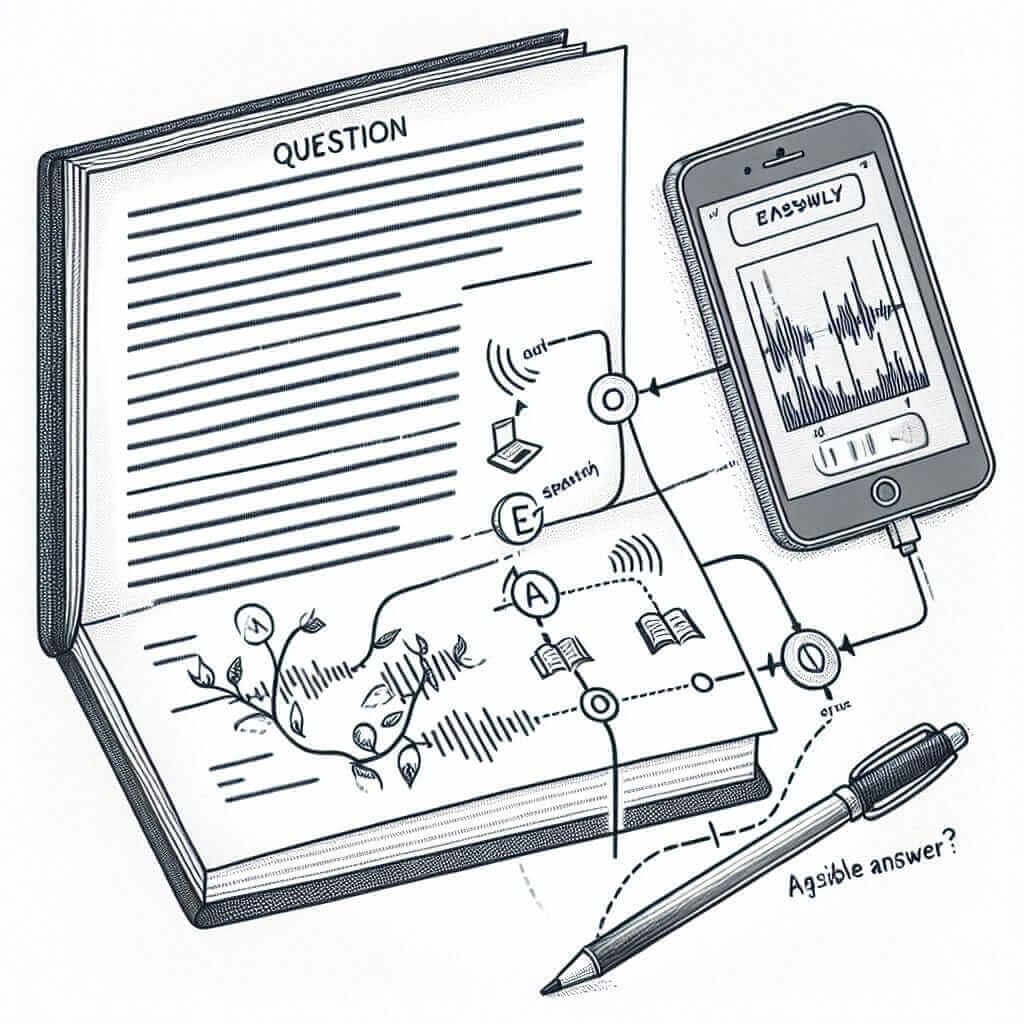As an IELTS instructor with over two decades of experience, I understand the importance of acing each section of the IELTS exam. Today, we’ll delve into the IELTS Listening Section 1, providing you with valuable insights and strategies to boost your confidence and score.
What is IELTS Listening Section 1?
The IELTS Listening test begins with Section 1, a seemingly simple yet crucial part that lays the foundation for your overall listening score. This section assesses your ability to understand and extract key information from everyday conversations.
Format and Content
- Conversation type: A dialogue between two speakers in a social context. Imagine overhearing a conversation at a hotel reception or a phone call about booking a tour.
- Number of questions: 10 questions.
- Question types: Multiple choice, note completion, form/table completion, sentence completion, short answer questions.
- Audio Length: Approximately 4-5 minutes.
Why is IELTS Listening Section 1 Important?
- Sets the tone: Starting strong can boost your confidence for the remaining sections.
- Tests basic comprehension: It evaluates your grasp of fundamental vocabulary, pronunciation, and grammar.
- Reflects real-life scenarios: The conversations often simulate situations you might encounter in an English-speaking environment.
Strategies for Acing IELTS Listening Section 1
1. Familiarize Yourself with Question Types
Before you dive into practice tests, understand the various question formats used in Section 1. Each type demands a slightly different approach, and knowing what to expect can be highly advantageous.
2. Practice Active Listening
Active listening is crucial. Don’t just passively hear the audio; try to engage with the conversation.
- Identify keywords: Pay close attention to nouns, verbs, adjectives, and adverbs that carry significant meaning.
- Focus on intonation and stress: These can provide clues about the speaker’s attitude and the importance of certain information.
- Predict answers: Before the audio plays, quickly read the questions and anticipate possible answers.
3. Pay Attention to Details
IELTS Listening is as much about detail as it is about comprehension.
- Spelling matters: Incorrect spelling can lose you marks, even if your answer is otherwise correct.
- Follow instructions carefully: Adhere to word limits and specific requirements mentioned in the instructions.
4. Utilize the Given Time Wisely
- Before the audio: Use the 30 seconds provided to skim through the questions and underline keywords.
- During the audio: Listen attentively and jot down answers on the question paper.
- After the audio: Utilize the 30 seconds to check your answers for completeness and accuracy.
Example from an IELTS Listening Test
Situation: A customer calling a travel agency to inquire about a tour package.
Question Type: Form Completion
Audio Script Excerpt: “The ‘Explorer’s Package’ includes accommodation for three nights at the Grandview Hotel. It’s a four-star hotel located in the heart of the city.”
Question:
Name of Hotel: ____
Answer: Grandview Hotel

Key Takeaways
- Don’t underestimate Section 1: Its simplicity can be deceiving. Prepare thoroughly to build a strong foundation.
- Practice regularly: Consistent practice with authentic IELTS materials is key to improving your listening skills.
- Develop active listening habits: Train yourself to focus, identify keywords, and anticipate information.
- Pay attention to details: Spelling and following instructions are crucial for maximizing your score.
Remember, consistent practice and a strategic approach can help you confidently conquer the IELTS Listening Section 1. Good luck!